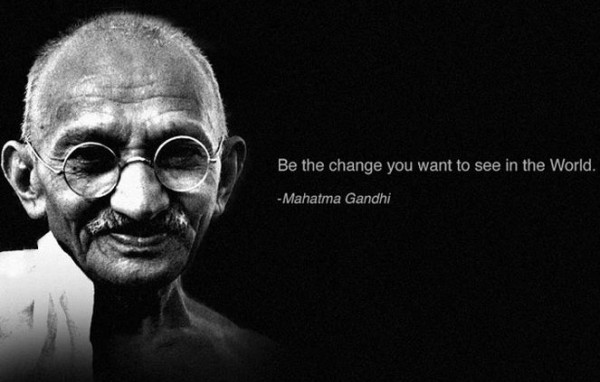Engaging in leadership coaching doesn’t necessarily mean signing up to work with a personal coach as an individual. It can also take the form of formalized executive coaching programs, occur in mentoring relationships, or emerge in other coaching programs. Being coached in regard to your leadership skills doesn’t mean that you are failing in your current position.

Even the most successful people in the world will receive help from coaches. A coach can help leaders see themselves and their situation from a different angle and teach them new skills, all of which can help improve performance, build self-confidence, improve communication, and help create stronger relationships with peers and subordinates.
How Does Leadership Coaching Work?
Depending on the avenue through which you are meeting with a leadership coach and the type of leadership coaching you’re receiving, the process won’t always look the same.
That being said, the leadership coaching skills generally remain the same. Leadership coach act as an advisor, strategist, sounding board, and guide. They’ll help you define and create a plan to reach your business goals while also analyzing your current leadership style and how it can be improved.
Coaches aren’t just cheerleaders.
Every coach has their own style, but tough love can also be an essential element of a coaching session. When entering a coaching session, it’s important to try and be open-minded that there are more things you can learn about being an effective leader, even if you are already highly skilled and experienced.
Leadership coaching skills?
There are many different benefits of leadership coaching that can help leaders grow. The leadership coaching skills not just help out in a person’s professional life, but they can also be incredibly useful in one’s personal life and in obtaining that all-important work-life balance.
Gaining self awareness skills
Self-awareness is one of the most valuable skills learned through leadership coaching. While we all might consider ourselves highly self-aware, the scary truth is that only a tiny percentage of the population is actually self-aware.
Leadership coaching can be massively beneficial to self-awareness. It can help leaders notice negative thought patterns, ineffective leadership behaviors, and much more.
Listening skills
Learning to listen isn’t quite as easy as it sounds. A leadership coach can benefit the leaders realize whether there is room for improvement when it comes to actively listening to their team and the other people they interact with throughout the day.
Meeting with a coach can help leaders identify barriers to active listening in their workplace and leadership style while also coming up with solutions to encourage active and effective listening within themselves and their team.
Self regulation skills
Self-regulation is an essential skill for managers and leaders. There are numerous different techniques that a leader can use to increase their self-regulation skills. Leadership coaching examples is, they help one learn to identify things that trigger negative emotions. By noticing and analyzing common patterns, they are better able to be present in the moment and stay in control of their emotional responses.
Communication style
Another valuable takeaway leadership coaching can produce for leaders is a greater understanding of their communication style. With the help of coaching, leaders can learn to offer their employees constructive feedback, set clear expectations, and become more aware of what they are communicating through their body language and nonverbal cues.
Growth mindset
A growth mindset is an outlook that views abilities, talents, skills, and intelligence as things they can learn and improve by applying effort. If a leader doesn’t already have a growth mindset, leadership coaching can help them achieve one.
Developing a growth mindset involves being able to think creatively, learning how to be flexible, and figuring out how to bounce back when wrenches are thrown in the gears of a project or campaign.
Knowing strengths
It can be challenging for leaders to see their strengths, even if they’re apparent to everyone around them. A leadership coach will be able to hold a mirror up to an executive, manager, or business owner so they can become aware of the places where they truly excel.
Once they have this information about their leadership style and skills, they’ll be in a much better position to leverage their strengths.
Showing empathy
Leadership coaching can also help leaders become more empathetic to their team and create a more supportive and productive environment.
When employees feel that their leaders are showing empathy when they are struggling or dealing with a problem, they tend to feel much more comfortable in the workplace and have a greater degree of trust in their leader.
Exuding powerful presence
Not everyone is a leader, but some people have an exceptional executive presence everywhere they go. Leadership coaches can help individuals change different aspects of their leadership and communication styles to present an executive presence that helps to magnify the effectiveness of the other leadership skills they have honed.
What Are the Benefits of Leadership Coaching?
Let’s look at the benefits of leadership coaching which include:
Fresh perspective
One of the benefit of leadership coaching is getting a fresh perspective. Sometimes things are right in front of our noses, but we’re too close to see them. Meeting with a leadership coach can help offer a fresh perspective that makes it possible to create lasting, meaningful, and positive changes.
Increased confidence: Leaders’ confidence levels can be positively impacted by the support offered by a leadership coach and simply having a witness to their progress and successes.
Enhance performance
Engaging in leadership coaching can help individuals be more effective in their leadership roles. By becoming more aware of their strengths and weaknesses, they can shift their style to best lead their team.
Boost job satisfaction
The fruits of stepping back and assessing one’s life and work can be life-changing. By analyzing one’s own leadership style, one can figure out how to have a better work-life balance. That can ultimately lead to better performance, increased job satisfaction, and improved retention at the organization.
What Are the Different Types of Leadership Coaching?
Before you begin a leadership coaching program at your company or start searching for a personal leadership coach, it can be useful to understand some of the most popular types of leadership coaching programs out there.
Business Leadership Coaching
Business coaching is focused on helping to improve leadership performance at the team level. Though coaches might engage individually with people in the program, the central goal of business coaching is to help teams develop strategies that allow them to meet their departmental and organizational goals.
The emphasis here is on improving collaboration and coordination within the workplace.
Executive Leadership Coaching
The executive coaching style is a one-on-one coaching experience. An executive coach will help high-ranking organizational individuals improve their management and leadership skills.
Usually, executive coaches will be hired from companies outside the organization and go through several sessions with executives. This helps new to leadership positions as well as more senior executives seeking a fresh perspective.
Strategic Leadership Coaching
Strategic coaching is a specific type of executive coaching. Just like executive coaching, strategic coaching is geared toward top-level leaders.
This is primarily focused on helping high-level executives focus on their long-term goals and determine effective paths to reach them.
Behavioral Leadership Coaching
Behavioral coaching focuses on an individual’s behavior and how it plays into their leadership style and effectiveness.
This type of leadership coaching might involve analyzing and changing behaviors to help leaders better connect and communicate with their teams.
Moving beyond the traditional high-touch model of leadership coaching requires an exploration of new tools, processes, and perspectives on what coaching should look like. As a result, coaching becomes a powerful and highly effective way to not only increase engagement but also grow talent within the organization.






